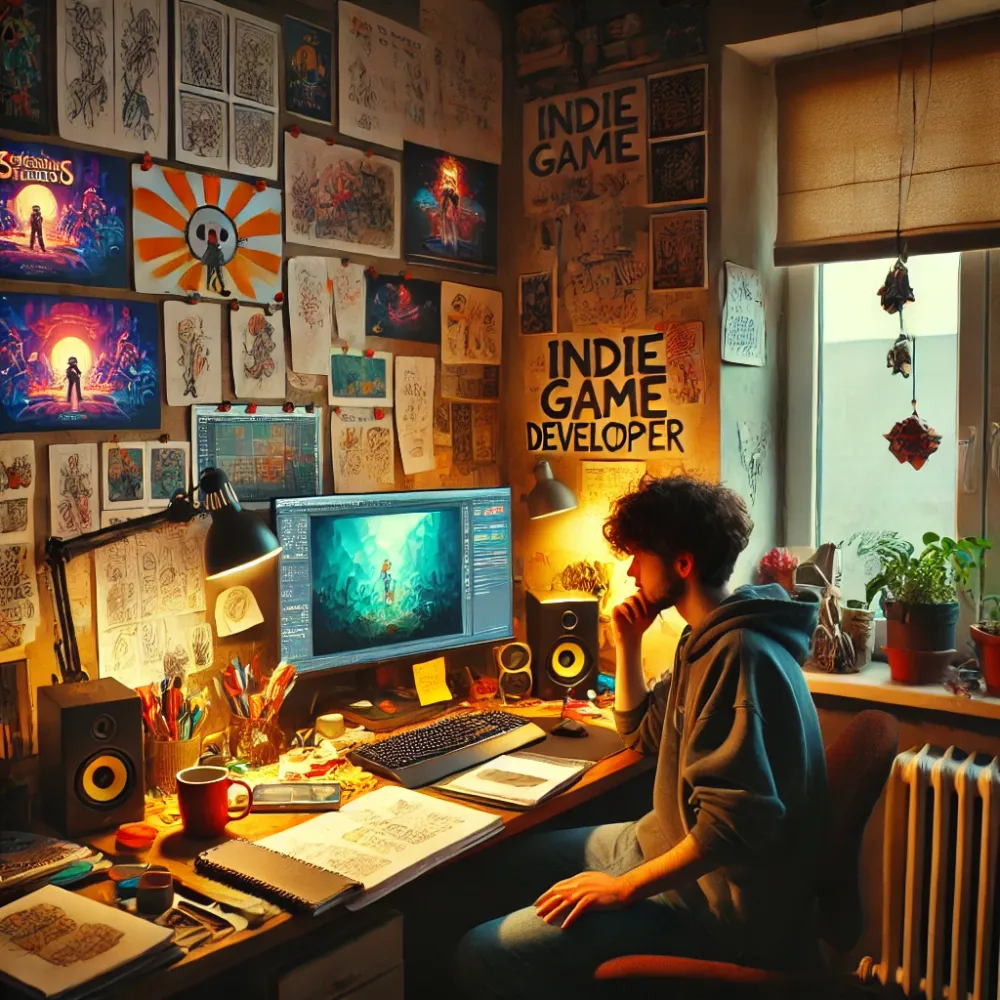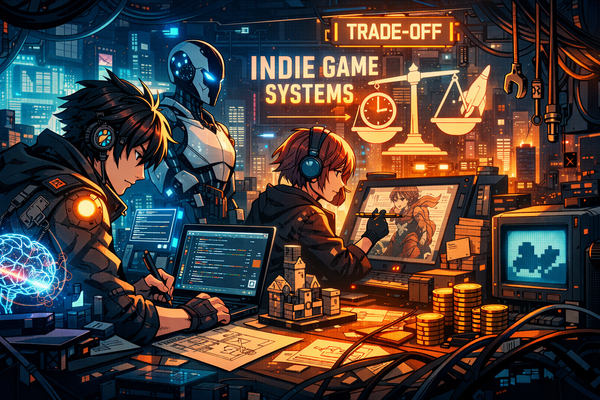Why passion, not skill, drives success in indie game development
Introduction: The role of passion in indie game development
Indie game development is a realm where creativity thrives, and unique ideas come to life, often without the constraints imposed by large studios and publishers. While technical skills are undeniably important in game development, it's passion that fuels the indie scene. This article delves into why passion is more critical than pure skill in indie game development, exploring its impact on innovation, community, perseverance, and the emotional resonance of games.
1. Passion fuels perseverance and resilience
The journey of an indie game developer is fraught with challenges, from financial constraints to technical hurdles. Unlike developers in large studios, indie developers often work alone or in small teams, wearing multiple hats as they juggle design, coding, marketing, and sometimes even funding. In such an environment, passion becomes the driving force that keeps them moving forward.
Passion for the project is what pushes developers through long nights of coding, debugging, and refining their games. It's this deep-seated love for what they are creating that allows them to persevere, even when the road ahead seems daunting. According to industry veterans, passion is what sustains indie developers through the tough times, enabling them to maintain the necessary resilience to see their projects through to completion (Codemotion).
2. Innovation over imitation: The creative freedom of indie developers
One of the greatest advantages that indie developers have over their AAA counterparts is creative freedom. Free from the pressure of adhering to market trends or the expectations of publishers, indie developers can take risks and innovate in ways that larger studios often cannot. This freedom allows passionate developers to experiment with unique gameplay mechanics, art styles, and narratives, leading to games that stand out in a crowded market.
For example, many of the most beloved indie games, like Undertale and Hollow Knight, were born out of a deep passion for storytelling and gameplay innovation, not out of a desire to conform to industry standards. These games succeeded because their developers were willing to take risks, driven by a love for their craft rather than a purely technical approach to game design (33rd Square).
3. Building a supportive community: The power of collaboration
The indie game development scene is known for its strong sense of community. Developers frequently collaborate, share resources, and support one another, creating an ecosystem that values creativity and passion over competition. This collaborative spirit is driven by a shared passion for game development, where success is often measured by the impact a game has on its players rather than its commercial success.
Communities like those found on platforms such as Itch.io or within the modding scene are crucial for indie developers. These communities not only provide moral support but also practical advice, resources, and even potential collaborators. The passion within these communities fosters an environment where developers can thrive, experiment, and grow.
4. Emotional connection with players: The authenticity of Passion-Driven games
Indie games often resonate with players on a deeper emotional level than many big-budget titles. This is because indie developers, driven by passion, tend to create games that are personal and authentic. They are not just products; they are expressions of the developer's ideas, experiences, and emotions.
Games like Celeste and Night in the Woods are perfect examples of how indie games can connect with players emotionally. These games explore complex themes such as mental health and community through engaging gameplay and storytelling, creating an experience that feels both intimate and impactful. The emotional depth of these games is a direct result of the passion and personal investment of their creators (Back2Gaming).
5. Passionate developers shape the future of Gaming
The impact of passionate indie developers extends beyond their individual games. By pushing boundaries and challenging conventions, they influence the broader gaming industry, inspiring both players and other developers. The success of indie games has shown that there is a place in the market for creativity and innovation, encouraging larger studios to take risks and explore new ideas.
Moreover, the rise of indie games has democratized game development, showing that with enough passion, anyone can create a game that resonates with players. This has led to an influx of new voices and perspectives in the gaming industry, further enriching the medium.
Conclusion: The unmatched value of passion in indie game development
In the world of indie game development, passion is not just a motivator; it's the lifeblood of the industry. While technical skills are important, it is the passion that drives developers to innovate, persevere, and create games that resonate deeply with players. Passionate developers are the ones who shape the future of gaming, not just by mastering the craft, but by infusing their work with creativity, authenticity, and a love for the medium that transcends mere technical proficiency.




